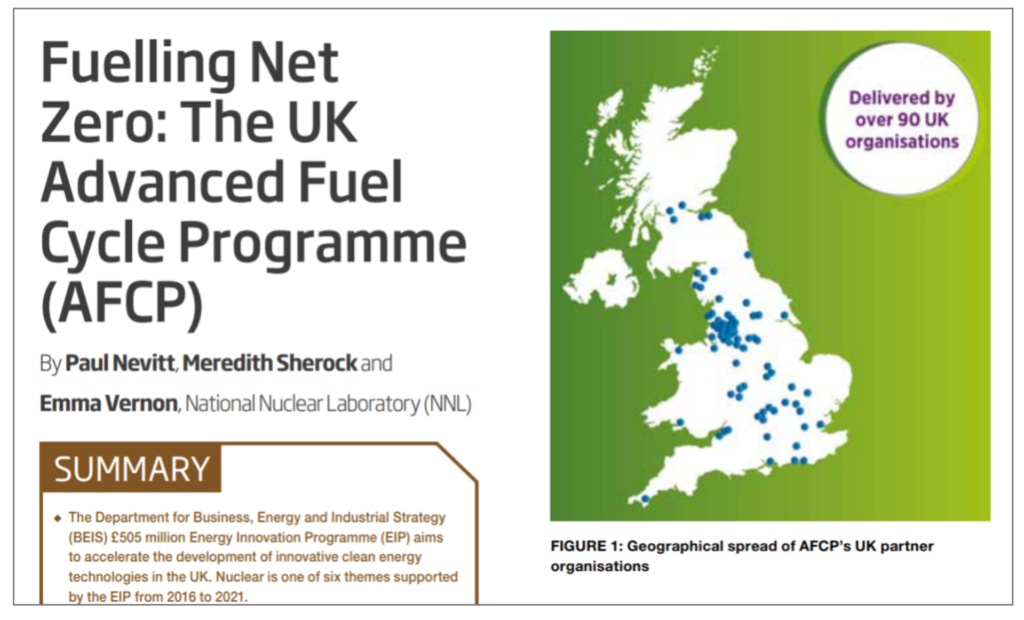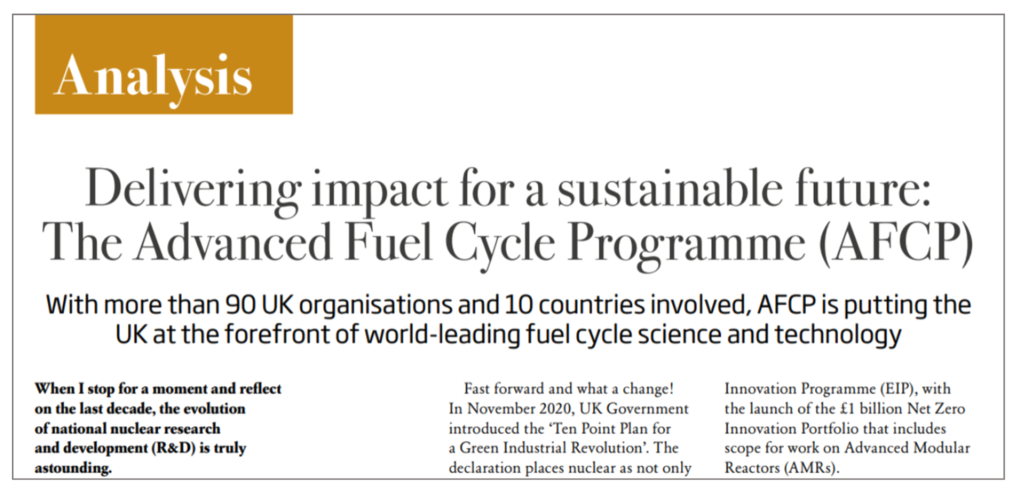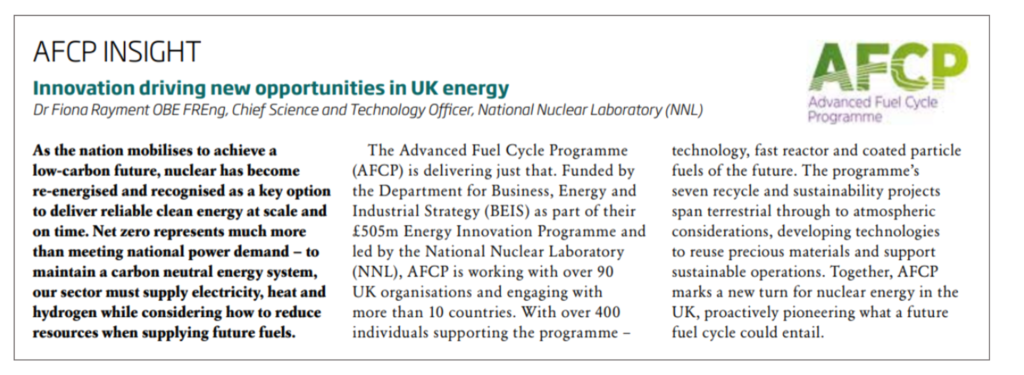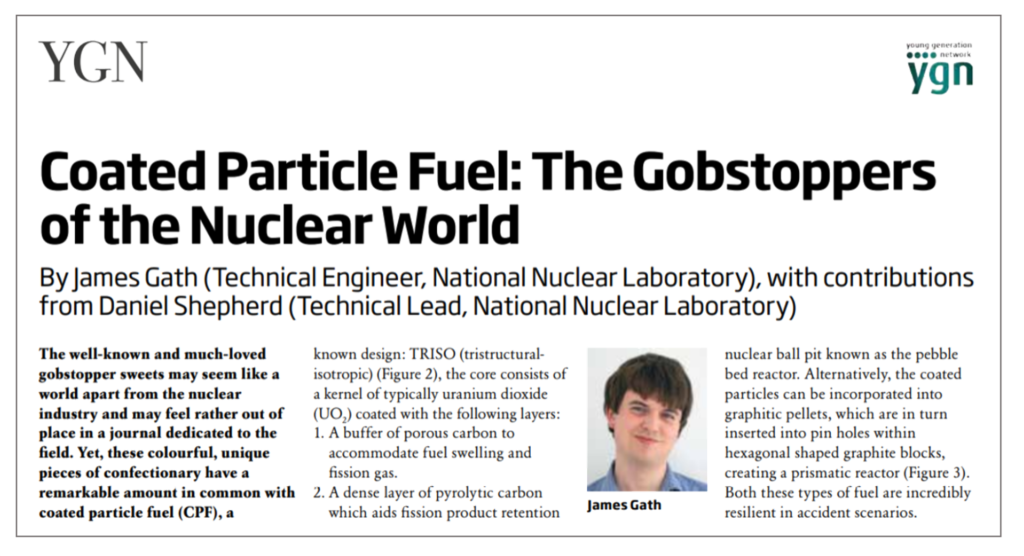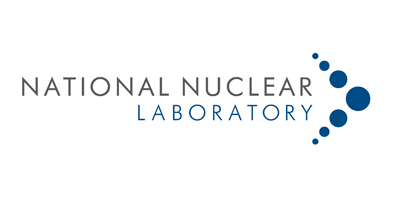Fuelling Net Zero in Nuclear Future
The Nuclear Institute’s Nuclear Future journal has featured AFCP (four times!) in a new issue, which is now available to read online. From technical insights through to early career perspectives, AFCP’s contributions delve into the lasting impacts of advanced fuel cycle innovation.
The Advanced Fuel Cycle Programme (AFCP) has contributed several features to the January/February edition of Nuclear Future, the Nuclear Institute’s dedicated journal – two of which are captured on the publication’s front cover. The full issue is now available online for all audiences to explore.
In the issue, AFCP authors explain the impact of advanced fuel cycles in the UK’s transition to Net Zero. The pieces, submitted by National Nuclear Laboratory (NNL) programme members, span technical papers through to informational feature stories.
Four fuel cycle features
In a technical paper, AFCP Technical Director Paul Nevitt, Programme Manager Emma Vernon and Communications Manager Meredith Sherock discuss the programme in depth (page 45). The paper explains AFCP’s strategic structure – from its technical fuel cycle themes to its impact-driven deliverables – to round out the need for holistic, integrated fuel cycle innovation on the UK’s path to Net Zero.
With a greater policy slant, Paul extends this paper in a feature analysis article (page 18). Reviewing each of AFCP’s strategic impact areas, he makes a case for why tactical planning and future-focused investment are key to build UK advanced fuel cycle capability. Providing a comprehensive introduction to the programme, Paul reflects on the visible step change he’s seen in nuclear innovation investment as the UK prepares for a clean energy future.
Introducing this piece is a foreword insight from Dr Fiona Rayment, NNL’s Chief Science and Technology Officer (page 7). Emphasising AFCP’s multidisciplinary model, Fiona recounts the value of advanced fuel cycles to meet future nuclear ambitions. A key piece of this strategy is the creation of a secure talent pipeline. Fiona summaries that AFCP is proudly building this through early career and academic engagement.
To this aim, NNL’s James Gath and Daniel Shepherd from AFCP’s Coated Particle Fuels team have a Young Generation Network (YGN) feature story in this issue (page 21). Complementing his recent award-winning presentation on coated particle fuel, James equates these fuel pellets to gobstoppers – illustrating the resilience and durability of advanced nuclear fuels. With both technical know-how and creative capability, James’ story is a great example of the true passion for nuclear science within the AFCP network.
Access the journal online
AFCP is proud to be recognised in these four stories – and this is just the beginning. Over the next several Nuclear Future issues, AFCP will be providing more technical and feature content to shine a light on the innovative work across the programme.
The January/February issue of Nuclear Future is now openly available for anyone – including those without Nuclear Institute memberships – to read online. Visit the archive of Nuclear Future issues to download the journal.
AFCP is part of the Department for Business, Energy and Industrial Strategy’s (BEIS) £505m Energy Innovation Programme.

